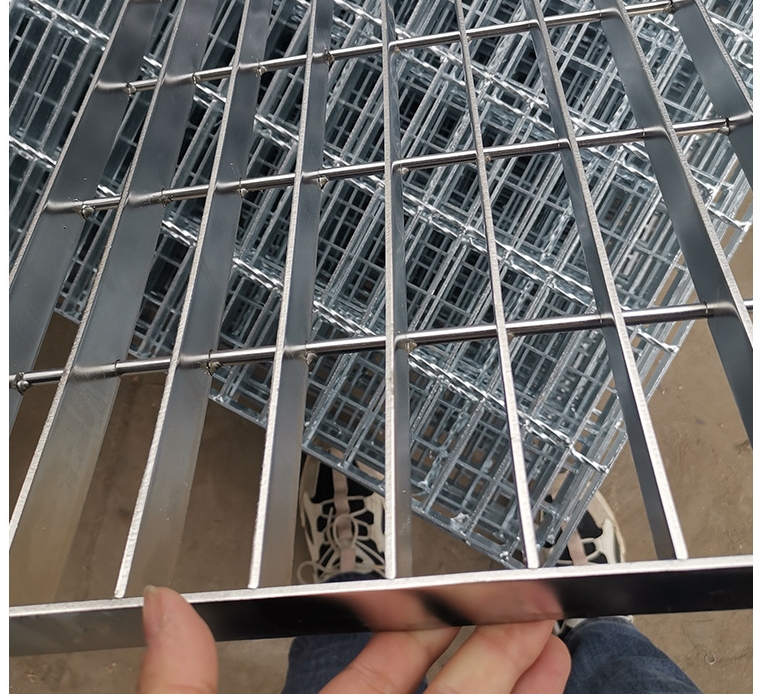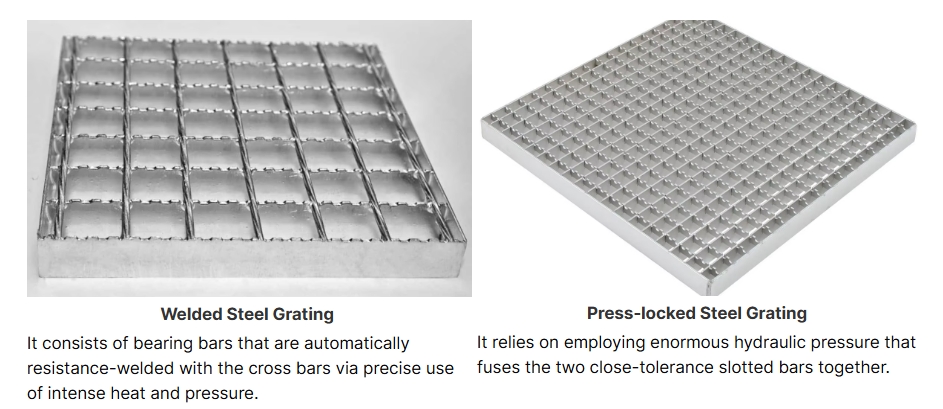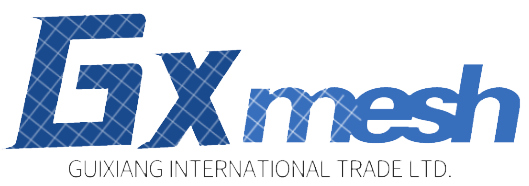Innovative Uses of Steel Grating in Modern Infrastructure
Time:
2025-04-30
Steel grating is a versatile, high-strength material widely recognized for its durability and adaptability across industries. This article explores its diverse applications, technical specifications, and industry-specific benefits.

Key Steel Grating Types & Structural Advantages
1. Welded Steel Grating
Structure: Bearing bars welded perpendicular to cross bars under high pressure.
Applications: Industrial platforms, stair treads, mezzanines.
Benefits: Superior load-bearing capacity (ideal for heavy machinery areas).
2. Press-Locked Grating
Structure: Cross bars mechanically locked into grooved bearing bars.
Applications: Walkways, bridges, architectural facades.
Benefits: Smooth surface, anti-slip properties.

3. Heavy-Duty Dense Grating
Structure: Tightly spaced bars (e.g., 30/100 series with 30mm bearing bar pitch).
Applications: Oil refineries, chemical plants.
Benefits: Resists impact and corrosive substances.
4. Composite Steel Grating
Structure: Combines steel grating with checkered plates (e.g., 3mm-thick sealing layer).
Applications: Mining conveyor platforms, wastewater treatment plants.
Benefits: Prevents debris fall-through while maintaining airflow.
Industry-Specific Applications
1. Petrochemical & Energy Sector
Use Case: Offshore oil rig platforms (G323/60/100 series).
Why Steel Grating?: Withstands harsh chemicals, saltwater corrosion (hot-dip galvanized coating).
2. Urban Infrastructure
Use Case: Pedestrian bridges, subway station ceilings (40/50 series).
Why Steel Grating?: Lightweight yet durable, reduces construction costs.
3. Agriculture & Aquaculture
Use Case: Poultry house flooring, fish farm walkways (30/50 series).
Why Steel Grating?: Easy waste drainage, ventilation, and predator-proofing.
4. Coastal & Marine Engineering
Use Case: Port dock surfaces, shipyard gangways.
Why Steel Grating?: Galvanized finishes extend service life to 95+ years in saline environments (see the following Table).

Technical Specifications & Best Practices
Sizing Guidelines
| Parameter | Standard Dimensions |
|---|---|
| Bearing Bar Pitch | 30mm, 40mm, 60mm, 100mm |
| Cross Bar Pitch | 50mm, 100mm, 200mm |
| Panel Width | 1m (customizable up to 1.2m) |
| Thickness | 3mm, 5mm, 8mm, 10mm |
Lifespan Optimization
Hot-Dip Galvanizing: Increases longevity by 3–5× vs. untreated steel.
Environment-Specific Choices:
Industrial Zones: 60+ years (40/100 series).
Coastal Areas: 95+ years (30/100 series with 12mm thickness).
Design Considerations
Load Requirements:
Use 30/100 series for truck-loading docks (≥5-ton capacity).
Opt for 40/50 series in pedestrian zones.
Span Support:
For spans >1.5m, add mid-frame supports to prevent deflection.
Safety Compliance:
Serrated surfaces (e.g., 8×8mm mesh) for wet environments.
Future Trends in Steel Grating
Sustainable Materials: Recycled steel gratings with powder-coated finishes.
Smart Integration: Sensor-equipped gratings for structural health monitoring.
keyword:
Steel grating applications,Industrial steel grating specifications,Hot-dip galvanized grating lifespan,Press-locked vs. welded grating,Composite steel grating design
Share the












